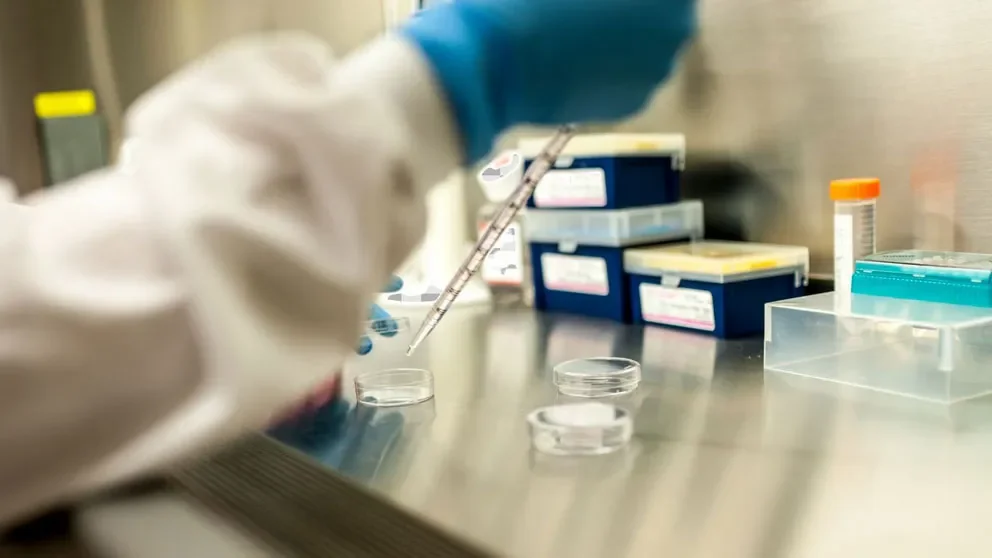Looking beyond beta cells for the causes of type 2 diabetes
Article | February 4, 2018
Jackson Laboratory scientist conducts large-scale survey of cells from prediabetic, diabetic and normal patients to discover new treatments.
In exploring the causes of type 2 diabetes, Jackson Laboratory Assistant Professor Michael L. Stitzel, Ph.D., is looking beyond the “usual suspects.”
In healthy people, the pancreas produces enough insulin to transport glucose (a simple sugar that is the product of the breakdown of starches and more complex sugars in foods) into cells, where it serves as the primary energy source. But in type 2 diabetes, the pancreas can’t produce enough insulin to force cells in insulin resistant tissues to import glucose, leading to dangerously high levels of glucose in the blood.
diabetes-and-metabolism-symposium
Type 2 diabetes is a worldwide epidemic. Incidence has quadrupled since 1980 to more than 422 million people — 30 million in the U.S. alone. Current therapies are not sufficient to stop the disease from progressing and causing subsequent medical problems that may include vision loss, heart disease, stroke, kidney failure, amputation of feet or legs, and premature death.
In the pancreas, cell clusters called islets contain multiple hormone-secreting cell types, including insulin-producing beta cells. So it’s not surprising that much diabetes research focuses on what goes wrong in the beta cell. Stitzel is looking at other cell types within the islet that may be deranged in type 2 diabetes, facilitating changes associated with disease progression.
“Islet dysfunction and beta cell death are key events in type 2 diabetes,” Stitzel says. “For decades, most research focused on the genes and processes within beta cells that go awry. Our lab is looking at changes in other islet cell types that may also contribute to beta cell function, dysfunction and death.”
Each of these candidates is a potential drug target that could be exploited to prevent or improve beta cell health and resilience.
Stitzel has received a Pathway to Stop Diabetes Accelerator Award from the American Diabetes Association (ADA) to pursue this line of research. The early-career award provides five years of research support for a total of $1,625,000.
“Invaluable support from the ADA will allow us to explore multiple islet cell types using innovativesingle-cell genomic technologies,” Stitzel says. By profiling thousands of cells each from non-diabetic, pre-diabetic, and type 2 diabetic individuals, Stitzel’s lab will generate an unprecedented survey of the genes and pathways that go awry in type 2 diabetes. “Each of these candidates is a potential drug target that could be exploited to prevent or improve beta cell health and resilience.”
Stitzel also expects his study to uncover important new roles in glucose control and diabetes onset and progression for the other islet cell types that are less studied and understood, such as alpha, delta, and pancreatic polypeptide cells. “A better understanding of these cells could fundamentally shift how we view, prevent and treat islet dysfunction and type 2 diabetes,” he says.
Moreover, by identifying the molecular changes in each cell type and linking them to genetic differences between people, Stitzel anticipates his lab’s research will lead to more precise screening for type 2 diabetes risk, and to more targeted treatment approaches and preventive regimens.
To Stitzel, diabetes is a “very personal” disease. “During my graduate and postdoctoral studies, members of my family were diagnosed with type 2 diabetes and gestational diabetes. Witnessing the challenges of monitoring and managing gestational and type 2 diabetes first-hand motivate me to identify new and better strategies to prevent and treat this complex disease.”
Stitzel notes that genetics and lifestyle factors contribute to islet dysfunction and diabetes. He sees the future of diabetes research moving toward precision medicine-based approaches, as in other complex diseases.
“Because there are likely hundreds of ways that genetic and environmental risk factors combine to impair islet function and contribute to type 2 diabetes onset and progression,” he says, “type 2 diabetes is probably not just one disease but more likely a constellation of disease sub-types” that lead to islet failure and high blood sugars.
“It is my hope and expectation that we, the diabetes research and treatment communities, will be able to identify diabetes subtypes, determine more precise predictions of diabetes risk, and develop more stratified, precise treatment and prevention strategies by integrating multiple, innovative analyses of patient samples.”
The Jackson Laboratory is an independent, nonprofit biomedical research institution based in Bar Harbor, Maine, with a National Cancer Institute-designated Cancer Center, a facility in Sacramento, Calif., and a genomic medicine institute in Farmington, Conn. It employs more than 2,000 staff, and its mission is to discover precise genomic solutions for disease and empower the global biomedical community in the shared quest to improve human health.
American Diabetes Association Pathway to Stop Diabetes Accelerator Award Deciphering Longitudinal Cell Type-Specific Defects in Diabetes Pathogenesis Grant reference number 1-18-ACE-15

